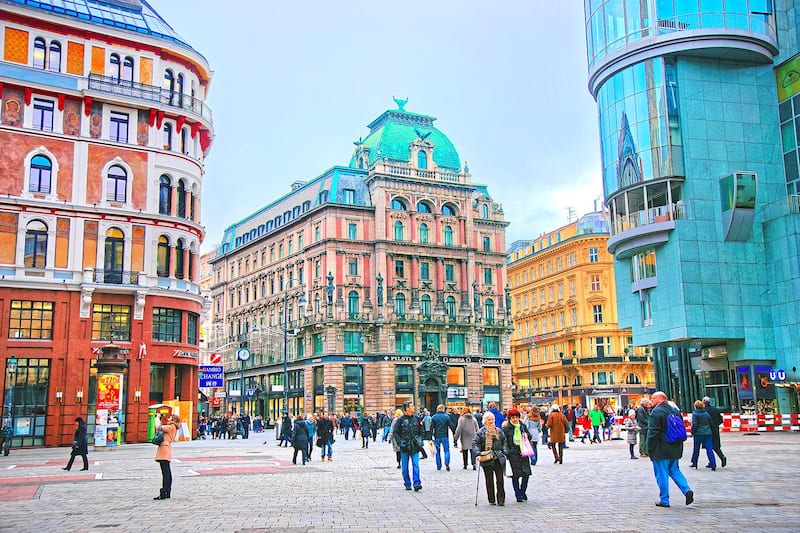

The Ultimate List of Day Trips Around Austria!
Austria is a country that offers a diverse range of travel experiences, from stunning natural landscapes to cultural and historical landmarks. A list of travel recommendations for Austria would include destinations that cater to various interests and preferences. The country is known for its scenic mountain ranges, including the Alps, which are popular among outdoor enthusiasts. Other notable destinations in Austria include historic cities such as Vienna and Salzburg, which are rich in cultural heritage and offer a glimpse into the country's fascinating past.
Additionally, Austria boasts numerous museums, art galleries, and music venues, making it an ideal destination for art and music lovers. Whether you are interested in exploring the great outdoors, immersing yourself in history and culture, or simply relaxing in charming villages and towns, Austria has something for everyone.
For more travel tips & information, visit our Youtube channel!
CategoryHistorical Activities
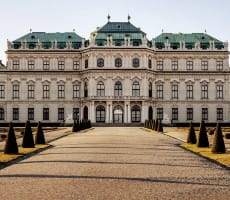
Beldevere Palace
The Belvedere Palace in Vienna, Austria is a historical building complex comprising of two barrack palaces, the Upper and Lower Belvedere, along with the Orange Ring and the palace stables. The complex is situated in a barrack park landscape in the city's third district, on the southeastern edge of the center. It is home to the Bilbidar Museum and features decorative tiered fountains, cascades, barrack sculptures, and majestic wrought iron gates on its gently sloping grounds. The palace was constructed during a period of extensive building in Vienna, which was both the imperial capital and home to the ruling Habsburg dynasty. It was built as a summer residence for Prince Eugene of Savoy, the commander in chief who successfully concluded a series of wars against the Ottoman Empire.
- Prinz-Eugen-Straße
- Historical Activities
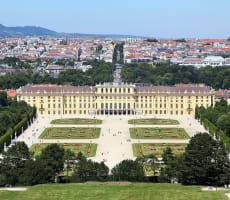
Schönbrunn Palace
Since the 1960s, Schonbrunn Palace has been a major tourist attraction in Vienna, drawing millions of visitors each year. It is considered one of Austria's most significant cultural assets. When visiting Schonbrunn Palace, take the time to relax and enjoy the beautiful gardens. In 1996, Schonbrunn Palace was included on the UNESCO World Heritage list, confirming its importance as a unique Baroque symbol. The Palace was a former imperial summer residence in Vienna, Austria, and from there, visitors can also enjoy the beautiful Federal Gardens of Schonbrunn.
- Schönbrunner Schloßstraße
- Historical Activities
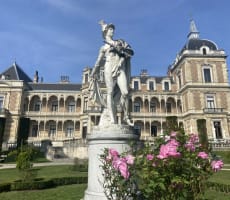
Hermesvilla
The Hermes Villa, located in the Line Sir Tier Garden in Vienna, was once a hunting ground for the Habsburg nobility. Emperor Franz Joseph the First gifted it to his wife, Empress Elizabeth (nicknamed Cece), who he hoped would stay in Vienna. He even named it "The Castle of Dreams." The villa's name comes from a white marble statue of Hermes situated in the garden of the villa. The villa is renowned for its art in natural settings and is currently used for special exhibitions and cultural history by the Vienna Museum. Architect Carl Freiherr von Hasinawar designed the villa, which was built from 1882 to 1886. The empress commissioned the sculptor Ernst Herter to create the Hermes der Wächter sculpture, which was placed in the villa's garden. In 1885, the decision was made to rename the building Villa Hermes, and in 1886, the villa, along with surrounding buildings, including riding facilities and stables, was completed.
- Hermesvilla
- Historical Activities
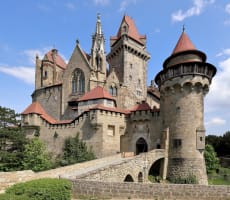
Kreuzenstein Castle
Kreuzenstein Castle is a castle located in Leobendorf, Austria. The castle was originally built in the 12th century, but was destroyed in the 17th century during the Thirty Years' War. In the 19th century, it was rebuilt by Count Johann Nepomuk Wilczek in the neo-Gothic style, and today it is considered one of the most important neo-Gothic castles in Austria. The castle houses a museum with exhibits on the history of the castle and the Wilczek family, as well as a falconry center and a restaurant. It is a popular tourist destination and has been featured in several movies and TV shows.
- Leobendorf
- Historical Activities
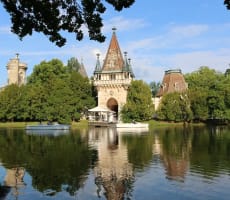
Laxenburg Castle
Laxenburg Castle is a palace located in the town of Laxenburg, in the eastern part of Austria. The castle was originally built in the 13th century as a medieval castle, and was later expanded and remodeled in the Baroque style in the 17th and 18th centuries. It was a summer residence of the Habsburg dynasty, who used it as a hunting lodge and a place to entertain guests. The castle is surrounded by a large park, which features a lake, a number of pavilions, and several gardens. Today, the castle is open to the public and is used for events and exhibitions.
- Laxenburg
- Historical Activities

Dürnstein Ruins
The city of Dornstein and its castle ruins are connected by a wall. The castle, constructed by the Cohen Ring family between 1140 and 1145, was destroyed by a blast in 1645 carried out by the Swedes under General Thorstenson. The city and ruins of the castle are on display at Dornstein Abbey. The castle is renowned for the legend of Richard the Lionheart. According to the legend, upon returning from the crusades, the English king tore up the Austrian flag and refused to share his spoils of war with Leopold the Fifth. As a result, Leopold held him prisoner in the castle from 1192 to 1193. The royal prisoner was allowed to receive traveling singers and troubadours for entertainment, which gave rise to the saga of the singer Blondel. The ruin of Dornstein can be accessed freely year-round, and a hiking trail leads to beautiful natural and cultural outlook points in the Vacao region. The ancient Coin Ringer city is an essential destination from the bank of the Danube river. The castle ruins, situated in Dornstein in the Lower Austrian Wacko region of the Danube river, stand at 312 meters above sea level and are a magical sight to behold.
- Dürnstein
- Historical Activities
CategoryMuseums

Ernst Fuchs Museum
The museum is housed in a historic Viennese palace and features a vast collection of Fuchs' paintings, sculptures, and other works of art. It also displays works by other artists associated with the Fantastic Realism movement, including Salvador Dali, Rudolf Hausner, and Wolfgang Hutter. The museum's interior design and furnishings were also created by Fuchs himself and are as much a work of art as the pieces displayed within the museum.
The Ernst Fuchs Museum is a popular destination for art lovers and tourists visiting Vienna, offering a unique and immersive experience into the mind and work of one of Austria's most famous artists.
- Hüttelbergstraße
- Museums
CategoryLandmarks
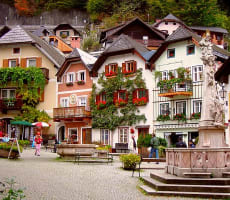
Hallstatt
Tourism in Hallstatt began in the 19th century, but it significantly increased after it was declared a UNESCO World Heritage Site in 1997. In 2006, it became popular among Asian tourists, with social media images captioning it as "the most Instagrammable town in the world." You can enjoy the stunning views of the Hallstatt region, including its dramatic mountain landscapes and fresh air, on a fairy ride. It is also one of the most visited places in Europe. The Lake of Hallstatt is accessible for swimming, and from Obertraun, there is a well-maintained bathing area with spacious changing rooms, a beach volleyball court, playground, water slide, barbecue areas, and a snack bar. Hallstatt is considered to be one of the oldest continually inhabited settlements in Europe and a UNESCO Heritage Site, and is an important Austrian tourist attraction. It is also famous for the world's first salt mine located in the stunning salt caves that can be visited by tourists.
- Hallstatt
- Landmarks
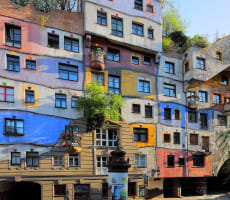
Hundertwasser House
The Hundertwasser House in Vienna, which is the 100th Bowser House, is considered one of Austria's architectural marvels and features the unmistakable handiwork of the artist Friedensreich Hundertwasser. The exterior of the building is vibrantly decorated, capturing one's attention almost magically. Additionally, more than 200 trees and shrubs adorn the balconies and roofed terraces, creating a green oasis in the heart of the city. The Hundertwasser House is located across from the Hundertwasser Village, which was built in 1990-1991 from a tire workshop and is open to visitors.
- Vienna
- Landmarks
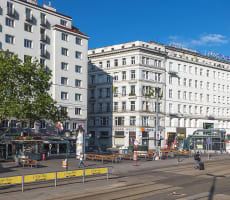
Schwedenplatz
As we step off the tram at Swedenplatz, we're greeted with the lively atmosphere of Shredding Platz. This square was named after World War I, in recognition of Sweden's aid to the newly-formed Austrian Republic.
While most people rush in and out of trams and buses, others take the time to relax and savor some delicious food at one of the many outdoor restaurants, or grab a quick snack from one of the traditional Viennese hot dog vendors. And that's not all - you can also enjoy a leisurely stroll along the long stretch of the Danube river or take in the scenery while seated.
- Vienna
- Landmarks
CategoryRecreational Activities
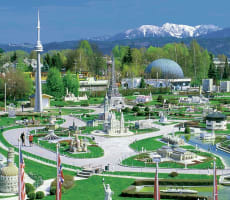
Minimundus
Minimundus provides a fun day out for families where they can travel the world and explore 159 models from over 40 countries, all in one indoor exhibition. In just a few hours, visitors can see miniatures of famous constructions such as the Parthenon of Greece, the Taj Mahal of India, and the Great Wall of China in a scale of 1:25. The permanent indoor exhibition promises excitement and entertainment for the whole family. Minimundus opened its doors to the world in July 1959 and has since welcomed over one million visitors. The area was expanded in 1977 and an on-site workshop was built in 1982 during a construction phase that lasted until 1983. In its jubilee year of 1983, Minimundus celebrated 25 years and welcomed its seven millionth guest at Lake Wörthersee.
- Villacher Straße
- Recreational Activities
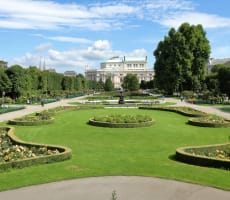
Volksgarten
When the sun is shining, it's the perfect time for you to step outside and bask in the warm rays with your loved one. Take a break from your worries and cherish these moments, as memories like this can last a lifetime.
If you happen to be in Vienna, Volksgarten is a beautiful park that is well-maintained and conveniently located next to Heldenplatz and Hofburg Palace. It's an ideal place to rest and relax after a long walk, with plenty of benches to sit on and enjoy the stunning rose garden and soothing fountains. This peaceful oasis is a popular spot for tourists and wedding photographers alike, so you may even see a happy couple posing for photos while you stroll through the garden.
- Vienna
- Recreational Activities
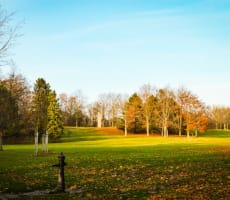
Kurpark Oberlaa
The 1974 Second Vienna International Garden Show had the theme "From wilderness to new recreation area for Southern Vienna." This event provided the Viennese authorities with a unique opportunity to create a large green area by merging the gardens of Oberlaa resort. This park location contains an extensive collection of show gardens designed in exotic, modern, nostalgic, and troll concepts. Gardens for children and the elderly were also created. Today, this area is a popular recreation spot for residents of the surrounding districts.
- Vienna
- Recreational Activities
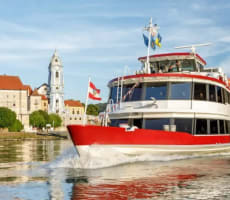
Krem - Spitz
Traveling by boat is a delightful way to enjoy the beautiful weather and scenery, while sipping a cup of coffee. The journey from Krems to Spitz takes only 1 hour and 20 minutes by boat. Spitz, located on the left bank of the Danube River, is a market town in the district of Krems-land in the Austrian state of Lower Austria. The town has a rich history dating back to Celtic times and is situated in the UNESCO World Heritage area of Wachau. The famous "Hill of a Thousand Buckets" is named for the numerous graves located there. Visitors, both young and old, can appreciate the miniature museum and Arkanoa garden, which feature a variety of fruits and vegetables.
- Spitz
- Recreational Activities
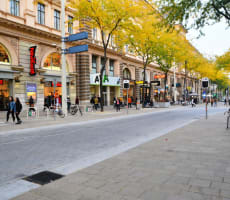
Mariahilfer Straße
Vienna's largest and most famous shopping street, connecting the inner city with the west Van Hall. Walking in the middle of the street is perfectly acceptable. This kilometer-long shopping area offers plenty of opportunities for Instagram-worthy photos. Here, you can find everything you might think of, from designer clothes, bags, and footwear to sportswear. At the end of the street, you'll find the Museum Quarter, where you can visit the Natural History Museum.
- Vienna
- Recreational Activities
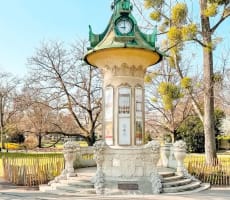
Stadtpark
The Municipal Park is a vast green space that spans from the Ring Strasse in the Inner Estate First District to the Higher Mark in the Landstrasse Third District. It is separated by the Wind Blue River and covers a total area of 65,000 square meters. After a long stroll in the park, you can rest and relax amidst the stunning scenery. Be sure to capture some memorable pictures as souvenirs.
- Vienna
- Recreational Activities
CategoryAdventure
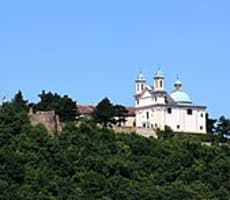
Leopoldsberg
To reach Leopoldsberg from the ground, you will need to ascend 425 meters above sea level. Along the way, you will come across the Grapes plantation, known for its Chardonnay wine. Simply follow the path if you wish to ascend the hill, and you will not get lost. If you plan to climb during summer, it's recommended to bring enough water and snacks to sustain you during the climb. Once you feel tired, take a break and enjoy the view from one of the seats. The last 200 meters will take you to the top. From there, you can treat yourself to a panoramic view of the city, as Leopoldsburg Hill is Vienna's most iconic landmark. The hill stands above the Danube, and the city's prominent landmark, the church, can be clearly seen from Vienna. While the church is presently closed for renovation, it will be open soon, and you can enjoy its grandeur.
- Vienna
- Adventure
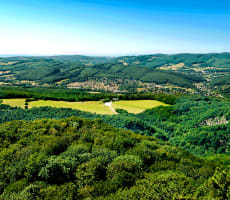
Gießhübl Föhrenberge Naturepark
As you make your way through the trail, keep an eye out for symbols that will guide you in the right direction. If you're looking for a place to escape the noise and chaos of the city, this could be the perfect spot to unwind and appreciate nature's splendor. Before embarking on your journey into the forest, make sure to bring plenty of water and snacks. Spending time in nature can be an incredibly enriching experience that feeds the soul and helps us reconnect with the world around us. Everywhere you look, there is beauty to be found in nature, and it always reflects the colors of our spirit. Take a moment to breathe in the fresh air and appreciate the wonders of the world.
- Gießhübl
- Adventure
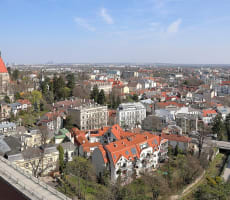
Mödling
Don't worry though, the path is easy to follow, and you'll surely enjoy the stunning views of the surroundings. Take a break and relax for a while at the picturesque Brighter Foray. Finding the magnificent rock formation of Matterhorn Dell is an adventure. Before heading up to the Khusran Temple, following the trail and using Google Maps, you can discover this beautiful rock formation. Don't forget to take photos to capture your memories.
- Mödling
- Adventure
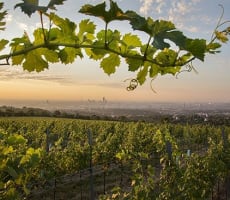
Cobenzl
Just a short car or bus ride from there will bring you to Am Himmel, with its forests, vineyards, and green meadows on the hill slopes. It's not an everyday experience to bask in such natural beauty, so let's cherish this moment and enjoy our freedom.
- Vienna
- Adventure
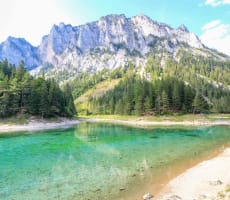
Grüner See
The lake is enveloped by the Hawkesville Mountains and forest, and its name, Green Lake, is derived from the color of its emerald green water. Its surface elevation measures at 776 meters, while its length spans 550 meters. The mean depth is 4.2 meters, with a maximum depth of up to 12 meters. This place is an exquisite creation of nature, especially when there is an abundance of water. It is accessible any day of the week, especially on weekdays, to avoid large crowds, particularly during the summer.
- Grüner See
- Adventure